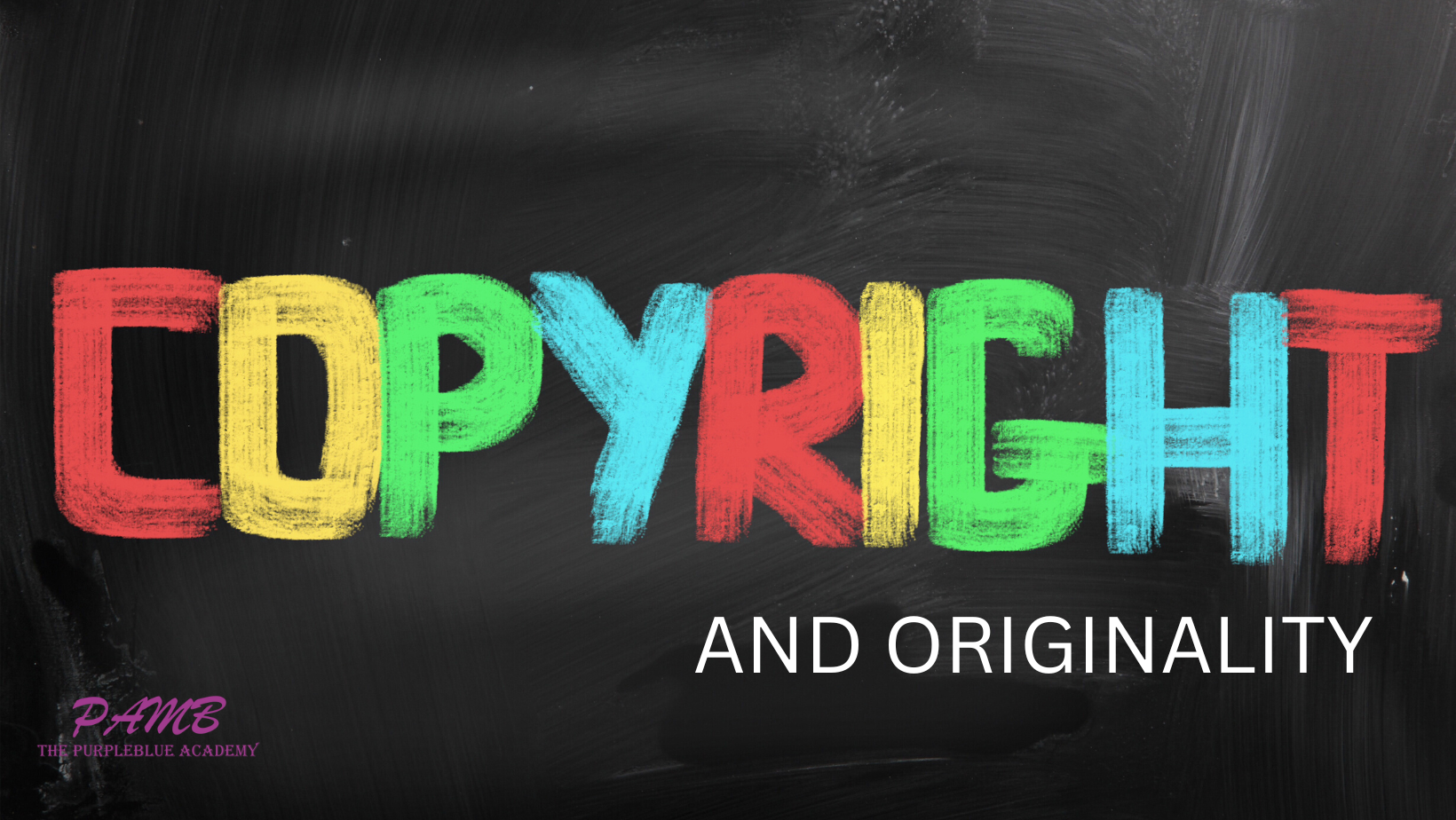
Copyright and Originality
Under the Nigerian Copyright Act there is no requirement for a work to be registered for it to be eligible for copyright protection.
Once the conditions prescribed by the Act are met, the right arises automatically. The Copyright Act provides that “a literary, musical or artistic work shall not be eligible for copyright unless‐
- Sufficient effort has been expended on making the work to give it an original character.
- The work has been fixed in any definite medium of expression now known or later to be developed, from which it can be perceived, reproduced or otherwise communicated either directly or with the aid of any machine or device.”
Indeed, a creative work must satisfy at least two critical conditions to enjoy copyright protection in Nigeria. The conditions are as follows: –
- The work must have an original character – this is known as the creativity factor.
- The work must be fixed.
There is actually a third condition, which provides that the author, publisher or owner of the work, as the case may be must be qualified under Sections 2, 3,4 or 5 of the extant Copyright Act.
For this article, we will concern ourselves with the two conditions of originality and fixation. So, please permit me to first share with you, the condition of originality and hopefully deal with the fixation condition in a subsequent article.
For a work to be eligible for copyright protection in Nigeria, the condition for originality must be satisfied. This requirement is however with respect to literary, artistic and musical works. The law did not however, say such a condition must be met for sound recordings, cinematograph films and broadcasts to qualify for copyright protection.
In relation to definition or interpretation, the Copyright Act says very little about what originality actually means. But the common interpretation would be that a creative work should originate from the creator or author.
Referencing the decisions of the British courts, which have set a fairly low threshold for meeting the requirement of originality, the courts in the United Kingdom do not expect a work to be novel, inventive or even useful nor do they judge the quality of the work.
Just like a popular phrase adapted from the Bible, which says “there is nothing new under the sun.” In that verse of the bible, the author of Ecclesiastes was complaining about the monotony of life and he said, “What has been will be again, what has been done will be done again; there is nothing new under the sun.” My understanding of this timeless scriptural verse is that everything has been done before.
In general, so long as sufficient effort, judgement and labour have been expended on making the work, it will be considered to be original. It means a work does not have to be original in the sense of original or inventive ideas. It does not really signify novelty; a work may be original even though it bears a resemblance to other works so long as the similarity is incidental, not the result of copy and past.
We can therefore say that what is original, for the purposes of copyright protection, is guided by facts and decisions from case law – judicial interpretation.
Originality is one of the major requirements; the sine qua non, for a creative work to enjoy copyright protection; meaning a work under Nigerian law will not be eligible for copyright protection without it. To qualify for copyright protection, a work must be original to the author. Originality requires independent creation plus a degree of creativity as opposed to copying other people’ works.
The originality requirement for creative works to enjoy copyright protection, help to establish that the effort and labour put into creating a work by an author is sufficient enough to justify copyright protection. It also helps to establish that the work created is a reflection of the author’s creativity and personality.
Today, the requirement for originality remains the hallmark of copyright protection. It is the very “premise of copyright law.”
The Dutch Supreme Court proposed a test during a 1985 hearing. “The test required that any work considered for copyright had to possess original character and authorial stamp, both of which arise from the labour invested by the maker.”
The originality test focuses on the relationship between the creator and his work unlike patent where the focus is the relationship between the invention and state of the art.
Originality does not suggest that a similar work has not been created. It means that the expression has not been copied. A work must not be copied from another work.
Thank you and stay safe.
CHINEDU CHUKWUJI, PhD
Chinedu Chukwuji is a Copyright and Music Business Expert, Lead Consultant at PurpleBlue Entertainment Solutions and founder of PurpleBlue Academy of Music Business



